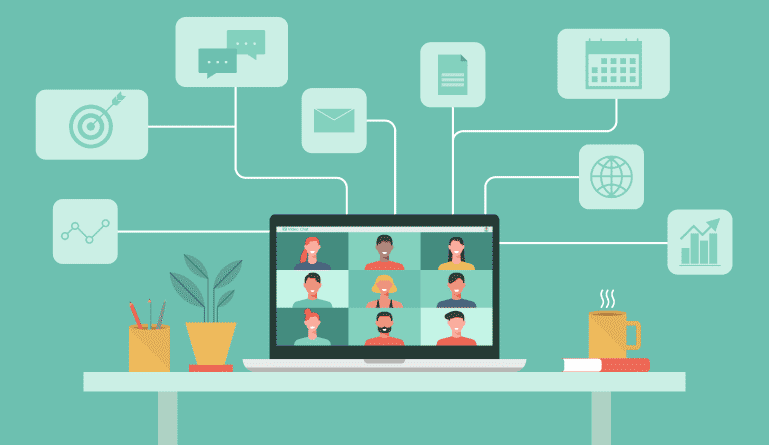The tornado of pandemics wreaked havoc on people’s lives and livelihoods. It made people from all walks of life suffer physical, emotional, social, financial, and professional thrusts. The COVID-19 outbreak and the ensuing shutdown disrupted the economic infrastructure, which led to a situation where uncertainty reigned supreme. However, as creation and progression are nature’s law, the planet has begun to evolve again in this post-pandemic era.
The world is ripping itself free of the dark clouds and advancing towards the golden ray of hope, with all necessary changes such as digital money and remote work management. Therefore, businesses are quickly transitioning and adopting new strategies, processes, and roles. This new normal have clarified those specific skillsets and abilities will become increasingly crucial for a company’s success in today’s business world.
According to the Society for Human Resource Management (SHRM) data, problem-solving and critical thinking were among the top soft skills candidates lacked for 37% of employers. Soft-skill-intensive occupations will account for two-thirds of all positions by 2030, according to a Deloitte Access Economics analysis(1), therefore learning and improving these skills is critical.
This article is about some of the essential post-pandemic skills that any organization, leader, or employee should have to sustain in this new world of new normal.
-
Leadership Quality
The modern business environment is not straight; it has become increasingly digital and complex. The spectrum of decisions that leaders must make has widened, encompassing everything from huge strategic thinking to meticulous execution and technology roadmap advancements and personnel upskilling and engagement.
The situation demands that now managers should not be the only ones who should have the ability to lead. Every employee’s personality should reflect this. Effective leadership should include the ability to communicate the plan and goal to subordinates and not command people. It’s about motivating co-workers to complete tasks and accept feedback from peers and superiors. It’s essential to be self-aware and accountable during these challenging times. The leadership quality in an individual makes him self-disciplined, so all of his endeavors lead to the organizational goal.
-
Responsiveness and adaptability
The post-pandemic age has prompted employees to be adaptable and responsive in the workplace. Some undeterred business brains introduced WFH and BYOG to ensure momentum in the market. Since then, concepts such as WFH and virtual zoom call have become the new normal, and employees are expected to adapt to this status quo. People have remarked that WFH is a monotonous setting where they do not feel productive. However, if the external environment is unsafe and physical workplaces cannot function at total capacity, the employee must be adaptable and work regardless of working style.
Because businesses worldwide are seeing a substantial increase in the number of employees who can work from home, this new way of working is likely to stick around long after the pandemic has passed.
The new definition of professional flexibility and responsiveness now includes keeping an open mind, working under pressure, adapting to new and unexpected deadlines, prioritizing tasks, and, in some situations, taking on more responsibilities. Employees in remote and hybrid work environments must respond promptly to inputs to attain a competitive edge.
Research reveals that half of the workforce want a hybrid arrangement, while a quarter desired full-time work away from home. One out of every four people aspired to work from home full-time. However, whatever working arrangement employees opt they must remain diligent towards work commitment; otherwise, they will be left behind.
-
The ability to think critically
The COVID-19 pandemic is recent time’s most significant public health issue, and critical thinking will be one of the essential abilities to own. Since the market is on a roller coaster ride, the employee must assess the pros and cons at every node of the decision-making process. Besides technical knowledge, critical thinking ability has become equally crucial in the present situation. This will assist employees in making informed decisions in challenging and uncertain conditions.
They make rational and well-thought-out, a reasoned judgment broad definition of critical thinking. There is no comprehensive information on the best techniques for combating the pandemic; therefore, now, the employee must weigh the situation and then decide accordingly.
Strong analytical thinkers extract information by asking probing questions about what, why, where, when, how for any happening and whether they can trust the information source. They do not blindly follow the viral post or news but evaluate information to make informed decisions.
-
Technologically savvy
The COVID-19 outbreak has proved the significance of technology and how, if used properly can be a game-changer for the world. Workforces must learn new skills and competencies to reap the benefits of transformation and prosper in an era of disruption.
The increased demand for new skills and capabilities across the workforce results from the latest technology evolution. The pandemic has heightened the urgent demand for specialized digital skillsets to assist businesses in becoming more aligned with today’s diverse technologies and platforms.
With the Fourth Industrial Revolution approaching, it is critical to invest in technologies and people who understand technology. The adoption of technology has surged the demand for technical skills to take advantage of the benefits of digital transformation.
Although the knowing platform is improbable, exhibiting a thorough working knowledge of data literacy, computer programming, big data, artificial intelligence (AI), blockchain, and allied topics will help employees excel in competition.
-
Communication and Social intelligence
Emotional intelligence can help businesses navigate the lasting effects of the pandemic. After over a year of isolation, stress, and loss, the world began to think ahead to a post-COVID-19 world.
Communication and social intelligence complement each other, and genuine human connection and understanding are still required in every job capacity.
Emotional intelligence is the ability to acknowledge and empathize with the emotions and behaviors of others, which is critical, especially when individuals are coping with the damages. And this is where solid communication skills come into the picture. The ability to express and be heard completes the communication, which has many mental health advantages.
Besides the metal aspect with so many working from home, clarity in emails and messages in the virtual meeting is essential for building trust and maintaining high productivity. Hence, strong communication skills are desirable.
-
Innovation and Inventions
Necessity is the mother of invention. While digitization has begun to play roles in analytics and operations, the human brain remains unique in creating and thinking creatively.
Creativity is not limited to traditionally creative occupations; it is required in every business and sector. The industry’s future will oblige the employees who tap into their creative minds to steer a company through the obstacles and possibilities it encounters.
The economic impetus endorse engagement in creativity that leads to contentment, stronger communities, and even financial success. It’s no surprise that global corporations are attempting to figure out how to encourage their employees to be more creative.
The ability to apply knowledge and expertise in unimaginable ways will be the primary determinant of success in the future. Robotics and artificial intelligence will automate a large portion of the work currently done manually. Healthcare, the law, and even education will all undergo radical transformations. The corporate ability to be creative and ingenious, solve issues, collaborate and experiment, and think creatively will determine its destiny.
Final Thought
COVID-19 has demonstrated the workforce’s endurance and versatility. Still, in the post-pandemic era, the issue now is maintaining the momentum and finding new ways to prosper in the long run.
Employers must provide new chances now more than ever to ensure that their employees can deliver on new business goals, establish a flexible, agile, and digitally-enabled workforce, and support a learning culture to futureproof their people and businesses.





